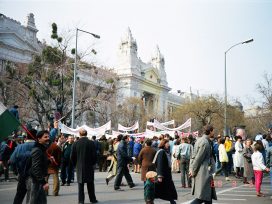From spring to autumn
The Estonian media post-independence
The Estonian media today has disappointed hopes that it would be a model of its kind in the post-Soviet space, writes Tiit Hennoste. While the traditional notion of journalists as “teachers of the people” survived the Soviet era, the pressures of independence proved insuperable. Estonia’s size means personal sympathies override political views, while a tiny market makes advertising sales paramount.


